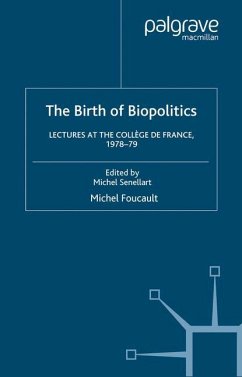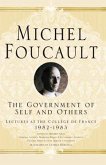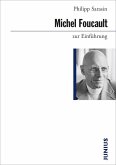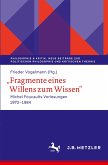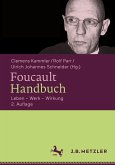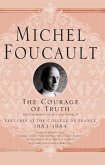Michel Foucault's 1979 lectures at the Collège de France, The Birth of Biopolitics , pursue and develop further the themes of his lectures from the previous year, Security, Territory, Population . Having shown how eighteenth century political economy marks the birth of a new governmental reason, Foucault undertakes the detailed analysis of the forms of this liberal governmentality. This involves describing the political rationality within which the specific problems of life and population were posed: "Studying liberalism as the general framework of biopolitics".
What are the specific features of the liberal art of government as they were outlined in the eighteenth century? What crisis of governmentality characterizes the present world and what revisions of liberal government has it given rise to? This is the diagnostic task addressed by Foucault's study of the two major twentieth century schools of neo-liberalism: German ordo-liberalism and the neo-liberalism of the Chicago School. In the years he taught at the Collège de France, this was Michel Foucault's sole foray into the field of contemporary history. This course raises questions of political philosophy and social policy that are at the heart of current debates about the role and status of neo-liberalism in twenty-first century politics. A remarkable feature of these lectures is their discussion of contemporary economic theory and practice, culminating in an analysis of the model of homo oeconomicus, or economic man.
Foucault's analysis also highlights the paradoxical role played by "society" in relation to government. "Society" is that in the name of which government strives to limit itself, but it is also the target for permanent governmental intervention to produce, multiply, and guarantee the freedoms required by economic liberalism. Far from being opposed to the State, civil society is thus shown to be the correlate of a liberal technology of government.
Original work by Foucault available in English for the first time.
What are the specific features of the liberal art of government as they were outlined in the eighteenth century? What crisis of governmentality characterizes the present world and what revisions of liberal government has it given rise to? This is the diagnostic task addressed by Foucault's study of the two major twentieth century schools of neo-liberalism: German ordo-liberalism and the neo-liberalism of the Chicago School. In the years he taught at the Collège de France, this was Michel Foucault's sole foray into the field of contemporary history. This course raises questions of political philosophy and social policy that are at the heart of current debates about the role and status of neo-liberalism in twenty-first century politics. A remarkable feature of these lectures is their discussion of contemporary economic theory and practice, culminating in an analysis of the model of homo oeconomicus, or economic man.
Foucault's analysis also highlights the paradoxical role played by "society" in relation to government. "Society" is that in the name of which government strives to limit itself, but it is also the target for permanent governmental intervention to produce, multiply, and guarantee the freedoms required by economic liberalism. Far from being opposed to the State, civil society is thus shown to be the correlate of a liberal technology of government.
Original work by Foucault available in English for the first time.
'Once more Michel Foucault demonstrates that he was perhaps the most prescient and challenging thinker of the twentieth century, and these lectures from 1978-9 have an enduring relevance for all those seeking to understand the forms of liberalism under which we are governed at the start of the twenty first century.' - Nikolas Rose, London School of Economics and Political Science, UK
'This is an excellent translation of Michel Foucault's fascinating lectures on the history of the arts or sciences of liberal government from Adam Smith to the neo-liberalism of the German and Chicago Schools. They throw critical light on the roots of neo-liberal globalization today.' - James Tully, University of Victoria, Canada
'A brilliant, lucid and supremely relevant survey of the true origins of the state which cuts through the imprecision of much more theory and offers ideas which are of direct relevance not just to academics but to those engaged in the political process. A reminder that academic analysis need not be dull and irrelevant. A text, drawn from live speech, which captures the magic of a brilliant mind at work.' - Nick Butler, Cambridge Centre for Energy Studies, UK
Praise for the series:
'These lectures offer important insights into the evolution of the primary focus of Foucault's later work - the relationship between power and knowledge.' - Library Journal
'Ideas spark off nearly every page...The words may have been spoken in [the 1970s] but they seem as alive and relevant as if they had been written yesterday.' - Bookforum
'Foucault is quite central to our sense of where we are...' - The Nation
'[Foucault] has an alert and sensitive mind that can ignore the familiar surfaces of established intellectual codes and ask new questions...[He] gives dramatic quality to the movement of culture.' - The New York Review of Books
'This is an excellent translation of Michel Foucault's fascinating lectures on the history of the arts or sciences of liberal government from Adam Smith to the neo-liberalism of the German and Chicago Schools. They throw critical light on the roots of neo-liberal globalization today.' - James Tully, University of Victoria, Canada
'A brilliant, lucid and supremely relevant survey of the true origins of the state which cuts through the imprecision of much more theory and offers ideas which are of direct relevance not just to academics but to those engaged in the political process. A reminder that academic analysis need not be dull and irrelevant. A text, drawn from live speech, which captures the magic of a brilliant mind at work.' - Nick Butler, Cambridge Centre for Energy Studies, UK
Praise for the series:
'These lectures offer important insights into the evolution of the primary focus of Foucault's later work - the relationship between power and knowledge.' - Library Journal
'Ideas spark off nearly every page...The words may have been spoken in [the 1970s] but they seem as alive and relevant as if they had been written yesterday.' - Bookforum
'Foucault is quite central to our sense of where we are...' - The Nation
'[Foucault] has an alert and sensitive mind that can ignore the familiar surfaces of established intellectual codes and ask new questions...[He] gives dramatic quality to the movement of culture.' - The New York Review of Books

